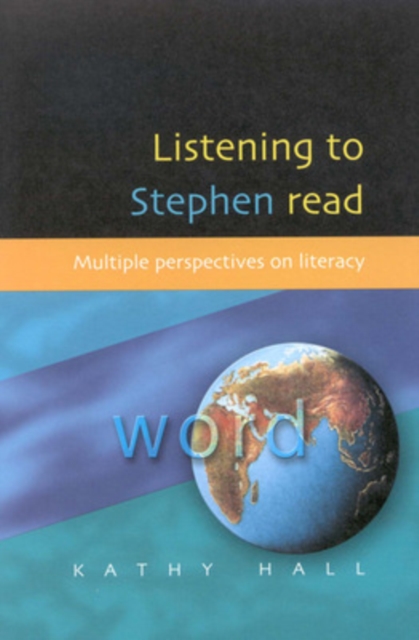
LISTENING TO STEPHEN READ Paperback / softback
by Kathy Hall
Paperback / softback
Description
"In this interesting, informative and accessible book Kathy Hall takes you on a journey of exploration and discovery and succeeds in challenging the reader's own stance on the teaching, not only of reading, but also of literacy as a whole.... an excellent, thought-provoking book which empowers the reader to critically reassess their own practice and will have a positive effect in many classrooms" British Journal of Educational Studies* How do different reading experts interpret evidence about one child as a reader?* What perspectives can be brought to bear on reading in the classroom?* How can a rich notion of literacy be promoted in the regular primary classroom?In this book Kathy Hall invites you to extend your perspective on reading by considering the responses of well known reading scholars (e.g.
Barbara Comber, Henrietta Dombey, Laura Huxford and David Wray) to evidence of one child as a reader.
Reading evidence from eight-year-old Stephen, who is 'under-achieving' in reading, together with the suggestions of various experts about how his teacher could support him provide a vehicle for discussing different perspectives on reading in the primary classroom.
The various approaches to literacy analysed include psycho-linguistic, cognitive-psychological, socio-cultural and socio-political.
The book aims to guide your choice of teaching strategies and to support your rationale for those choices.
Acknowledging the complexity and the richness of the field of research on literacy, the book demonstrates the futility of searching for a single right method of literacy development.
Rather we should search for multiple perspectives, guided by the diverse needs of learners.
Information
-
Available to Order - This title is available to order, with delivery expected within 2 weeks
- Format:Paperback / softback
- Pages:224 pages, bibliography, index
- Publisher:Open University Press
- Publication Date:16/11/2002
- Category:
- ISBN:9780335207589
Information
-
Available to Order - This title is available to order, with delivery expected within 2 weeks
- Format:Paperback / softback
- Pages:224 pages, bibliography, index
- Publisher:Open University Press
- Publication Date:16/11/2002
- Category:
- ISBN:9780335207589






